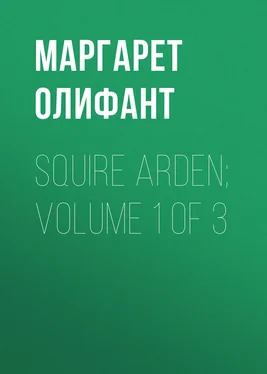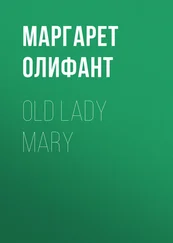Маргарет Олифант - Squire Arden; volume 1 of 3
Здесь есть возможность читать онлайн «Маргарет Олифант - Squire Arden; volume 1 of 3» — ознакомительный отрывок электронной книги совершенно бесплатно, а после прочтения отрывка купить полную версию. В некоторых случаях можно слушать аудио, скачать через торрент в формате fb2 и присутствует краткое содержание. Жанр: foreign_prose, literature_19, foreign_antique, на английском языке. Описание произведения, (предисловие) а так же отзывы посетителей доступны на портале библиотеки ЛибКат.
- Название:Squire Arden; volume 1 of 3
- Автор:
- Жанр:
- Год:неизвестен
- ISBN:нет данных
- Рейтинг книги:4 / 5. Голосов: 1
-
Избранное:Добавить в избранное
- Отзывы:
-
Ваша оценка:
- 80
- 1
- 2
- 3
- 4
- 5
Squire Arden; volume 1 of 3: краткое содержание, описание и аннотация
Предлагаем к чтению аннотацию, описание, краткое содержание или предисловие (зависит от того, что написал сам автор книги «Squire Arden; volume 1 of 3»). Если вы не нашли необходимую информацию о книге — напишите в комментариях, мы постараемся отыскать её.
Squire Arden; volume 1 of 3 — читать онлайн ознакомительный отрывок
Ниже представлен текст книги, разбитый по страницам. Система сохранения места последней прочитанной страницы, позволяет с удобством читать онлайн бесплатно книгу «Squire Arden; volume 1 of 3», без необходимости каждый раз заново искать на чём Вы остановились. Поставьте закладку, и сможете в любой момент перейти на страницу, на которой закончили чтение.
Интервал:
Закладка:
CHAPTER V
Edgar Arden had lived hitherto, as we have said, a very desultory wandering sort of life. He had been at school in Germany during his earlier years, and afterwards at Heidelberg, at the University, where he had seen a great many English afar off, and vaguely found out the difference between their training and ways of thinking and those in which he had himself been brought up. When he had first come to the age when a boy begins to inquire into his own position, and when it no longer becomes possible to take everything for granted, he had been told first that it was for his health that he had been sent away from home; and when he had fully satisfied himself that his health could no longer be the reason, other causes had been suggested to him equally unsatisfactory. It was his father who was in bad health, and could not be troubled with a lively boy about him; but then there were schools in England as well as in Germany, which would have settled that matter: or the German education was superior, which was a theory his tutor strongly inclined to, but which did not seem to Edgar’s lively young intelligence quite justified by the opinion visibly entertained by the English travellers whom he met. His first visit to England, after he was old enough to understand, made matters a great deal more clear to him. Injustice and dislike are hard to conceal from a young mind, even under the most specious disguises—and here no disguise was attempted. The Squire received his boy with a coldness which chilled him to the heart, saw as little of him as he possibly could, endured his presence with undisguised reluctance, and made it quite apparent to poor Edgar that, unlike all the other sons he had ever seen in his life, he was only a vexation and trouble to his father. The fact that his father was his enemy dawned vaguely upon him at a much later period; for it is hard in extreme youth to think that one has an enemy. A vague sense of being hustled into corners, and shut out of the life of the family, such as it was, had been the cloud upon his earlier days. He had felt that only in Clare’s nursery did he hold that position of chief and favourite to which surely the only son of the house was entitled. And little Clare accordingly became the one bright spot in the house which he still by instinct called home.
He had returned when he was seventeen, and again after he came of age—though not to be received with any rejoicings at that later period, as became the birthday of the heir. His birthday was over when he came home, and Clare, a girl of sixteen, thrust her little furtive present into his hand with a full sense that her brother was not to the Squire what he was to her. But at this period something occurred which enlightened Edgar as to his father’s feelings towards himself in the cruellest way; it enlightened him and yet it threw a confusion darker than ever over his life. The day after his arrival Mr. Arden sent for him, and elaborately explained to him that he wished for his aid in breaking the entail of certain estates, of which the young man knew nothing. It was the longest interview that had ever taken place between the two; and the Squire made very full explanations, the meaning of which was but indistinct to the youth. Edgar had all the impatient and reckless generosity which so often accompanies a buoyant temperament; his sense of the sweets of property was small; and he knew next to nothing about the estates. Had he known much there is little doubt that he would have done exactly as he did; but, however, he had not even that safeguard; and the consequence was that he took his father’s word at once, responded eagerly and promptly to the proposal, and gave his consent to denude himself of the property which had been longest in the family, the little estate from which the name of Arden first came, and which every Arden acquainted with his family history most highly prized. Edgar, however, knew very little about his family history; and with the foolish disinterestedness of a boy he acquiesced in all his father suggested. But after the necessary arrangements in respect to this were concluded Edgar caught a glance from his father’s eye which went to his heart like an arrow. It was in the hunting-field, where, untrained as he was, he had acquitted himself tolerably well; and he was just about to take a somewhat risky fence when he saw that look which he never forgot. The Squire had reined in his own horse, and sat like a bronze figure under a tree watching his son. And as plain as eyes could tell Edgar read in his father’s look a suppressed inappeasable enmity, which it was impossible to mistake; his father was watching intently for the spring—was it possible he was hoping that a fall would follow? How it was that Edgar got over the fence he never could tell; for to his hopeful, all-believing temper such a sudden glimpse into the darkness was like a paralysing blow. He kept steady on his saddle, and somehow, without any conscious guidance on his part, the horse accomplished the leap; but Edgar turned straight back, and went home with such a sense of misery as he had never experienced before. He was too wretched to understand the calls sent after him—the questions with which he was assailed. He could not even reply to Clare’s wondering inquiries. His father hated him—that was the discovery he had made. To suspect that anybody hated him would have given Edgar a shock; but to know it beyond all doubt, and to feel that it was his father who regarded him with such fierce enmity, made his very heart sink within him. He went away next day, giving no explanation of his desire to do so. Nor did the Squire make any inquiries. It was a mutual relief to them to be free of each other. Before his departure his father informed him that he would henceforward receive a much more liberal allowance—an intimation which Edgar received without thinking what it meant—without caring what sense was in the words. And that was the last he had seen of the Squire. Nobody but himself knew of this incident. It was nothing—an impression—a fancy; but in all Edgar’s life nothing had happened that was so bitter to him. The effect had not lasted, for his mind was essentially elastic, and he was young, and free to amuse himself as he would. Fortunately, the kind of amusements he preferred were innocent ones; for he had no guide, no one to control or restrain him, and not even the shadow of parental authority. His father hated him—a horrible freedom was his inheritance—nobody cared if he were to die the next day—nay, on the contrary, there was some one who would be glad.
This impression, which had been swept out of his mind by years and changes, came back upon him with singular force as all at once his eye fell on the great portrait of old Squire Arden, painted when he was Master of the Hounds, in sporting costume, which hung in the hall. He stopped short before it as he went in with his sister on the first day of his return, and felt a shudder come over him. Perhaps it was the costume and attitude which moved his memory; but there seemed to lurk in his father’s face, as he entered the house of which that father had been unable to deprive him, the same look which once had fallen upon him like a curse. He stopped short and grew pale, in spite of all his attempts to control himself. “Would you think it cruel, Clare,” he said suddenly in his impulsive way, “if I were to ask you to transfer that portrait to some other place? It has a painful effect upon me there.”
“This is your house, Edgar,” answered Clare. On this point her sweetness abandoned her. She knew he had been badly used; but she knew at the same time that her father had been all love and kindness to herself. Therefore, as was natural, Miss Arden took it for granted that somehow it must be Edgar’s fault.
“That is not the question,” he said. “I can understand by my own what your feelings must be on the subject. But it cannot harm him to remove it, and it does harm me to have it stay. If you will make this sacrifice to me, Clare–”
Читать дальшеИнтервал:
Закладка:
Похожие книги на «Squire Arden; volume 1 of 3»
Представляем Вашему вниманию похожие книги на «Squire Arden; volume 1 of 3» списком для выбора. Мы отобрали схожую по названию и смыслу литературу в надежде предоставить читателям больше вариантов отыскать новые, интересные, ещё непрочитанные произведения.
Обсуждение, отзывы о книге «Squire Arden; volume 1 of 3» и просто собственные мнения читателей. Оставьте ваши комментарии, напишите, что Вы думаете о произведении, его смысле или главных героях. Укажите что конкретно понравилось, а что нет, и почему Вы так считаете.












